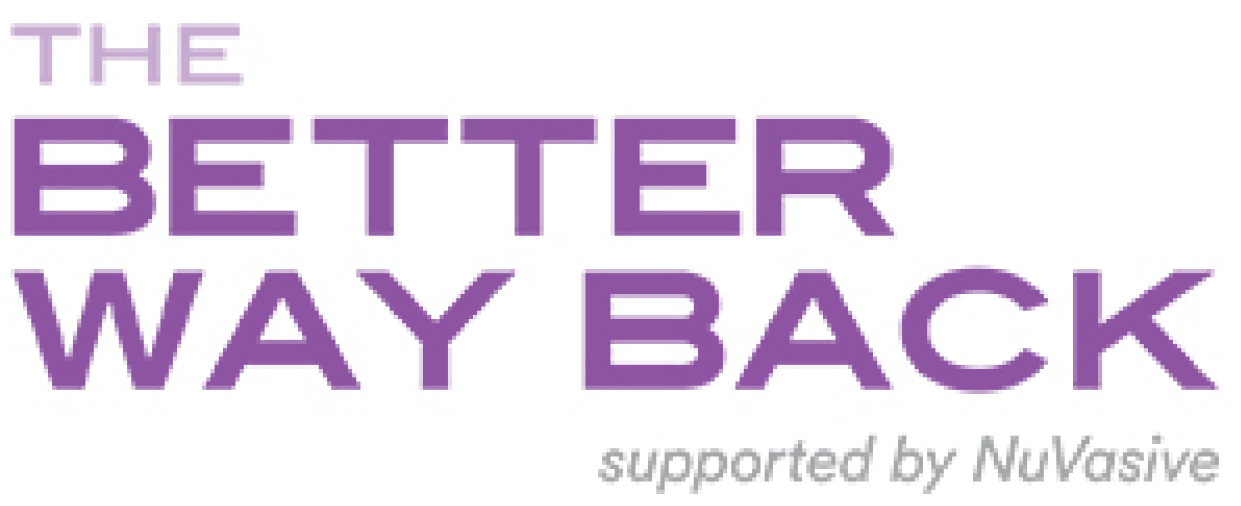Emotional support
Chronic pain isn’t just a physical challenge—it is a mental and emotional experience, and can take a toll on you and your supportive loved ones.
Seeking and accepting emotional support can greatly increase your ability to cope.

Depression
Chronic pain can prevent sufferers from focusing on the positive aspects of life. It’s common for chronic pain patients to take out their frustration and anger on those trying to help—friends and family. Alternately, some chronic pain patients withdraw from human contact and can slip into depression.1 A few things to keep in mind: you are not alone, never give up and consider reaching out to your patient ambassador—you’ll be amazed at how many people want to help you get your life back and how many tools they have to do it.

Addiction
For some patients, the powerful medication often prescribed for chronic pain can create problems with addiction. Confirm that you’re taking the dose prescribed by your doctor. Ask your caregiver for assistance if you need help monitoring your drug intake. If you feel the need to increase the prescribed dosage to help cope with the pain, speak to your doctor for his/her advice.

Stress and sleep disorders
Difficulty sleeping and feeling sadness are common symptoms in patients with chronic back or leg pain.1 These are distress signals that you shouldn’t ignore. Over time, emotional stress and fatigue can make it difficult for you to think and function at your best.1 If you have difficulty sleeping or notice a change in your mood, talk to your doctor about appropriate treatment. Joining a support group or talking to a therapist experienced with chronic pain issues can be helpful.
There are no small achievements.
Try to set realistic physical goals for yourself—both now and if you decide to proceed with surgery. Write those goals down and refer to them often. Keep in mind that, at first, some of your goals may be too ambitious—bungee jumping three weeks after surgery is definitely not a good idea. When you realize that, modify or set new goals that you can achieve. When you achieve a goal, no matter how modest, celebrate! Share your accomplishment with the people around you. Remember, they’re cheering for your success.

Professional help
These are resources that may be of help if you are in trouble. This information is not a substitute for professional advice or care. If you are in need of help, please reach out to your doctor, one of these organizations, another organization near you, a family member or friend, or dial 911.
Suicide hotlines
National Suicide Prevention Lifeline
800.273.TALK (8255)
Crisis Text Line
Text HOME to 741741
Confidential Hotline for Veterans or their loved ones
800.273.8255 (press 1)
Confidential Veterans Chat
Text 838255
Addiction resources
Alcoholics Anonymous
212.870.3400
Narcotics Anonymous
818.773.9999
Al-Anon/Alateen Family Group Services
888.425.2666
National Drug Information Treatment and Referral Hotline
800.662.HELP (4357)
Addiction treatment programs/rehab centers
888.979.9592
Crisis counseling
National Mental Health Association
1-800-273-TALK (8255)
Crisis Text Line
Text HOME to 741741
Poison control
American Association of Poison Control Centers
1.800.222.1222
References
1. Mayo Clinic Comprehensive Pain Rehabilitation Center Program Guide [Mayo Clinic Pain Rehabilitation Center Website]. Available at: https://www.mayoclinic.org/documents/mc1459-02-pdf/doc-20078829. Accessed February 5, 2021
